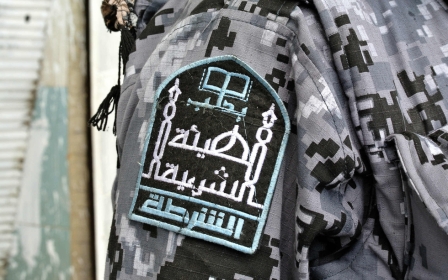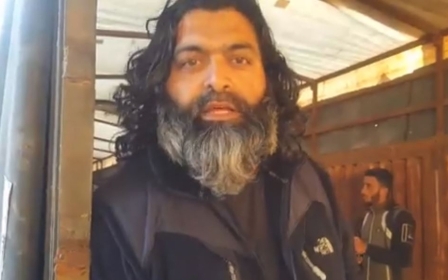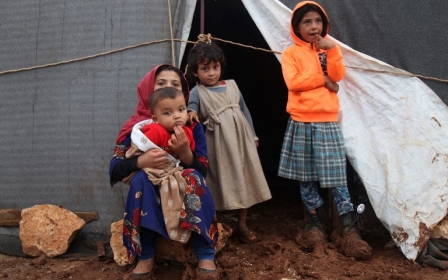Russia and Turkey agree to push back HTS in Syria's Idlib province

Russia and Turkey's presidents discussed stabilising the situation in Syria's Idlib province, where militant group Hay’at Tahrir al-Sham (HTS) has seized control, during talks on Wednesday.
The Russian Foreign Ministry said earlier on Wednesday that the situation in the region, where Moscow and Ankara have tried to create a de-escalation zone, was rapidly deteriorating and that it was almost under the full control of the militant group.
Russian President Vladimir Putin said the Russian and Turkish defence ministers had already held talks on specific actions that the two countries would take in Idlib and that the measures, which he did not describe, would now be implemented.
"Unfortunately there are many problems there and we see them," said Putin, standing alongside Turkish President Recep Tayyip Erdogan.
He said Turkey was trying to remedy the situation, but that more action by both Ankara and Moscow was required to "liquidate the actions of terrorist groups".
Putin said he had agreed to host a summit soon where Russia, Turkey and Iran would discuss the situation in Syria. He did not give a date for the summit but said he and Erdogan had agreed on its provisional timing.
Putin also said he wanted Syria President Bashar al-Assad and Kurdish forces, who holds parts of northern Syria, to begin talks.
The Russian leader also complained about the difficulty of forming a UN-sponsored constitutional committee for Syria, saying that France, Germany and Britain had blocked the proposed make-up of the committee in December, a move he said had come as a surprise for Moscow.
New MEE newsletter: Jerusalem Dispatch
Sign up to get the latest insights and analysis on Israel-Palestine, alongside Turkey Unpacked and other MEE newsletters
Middle East Eye delivers independent and unrivalled coverage and analysis of the Middle East, North Africa and beyond. To learn more about republishing this content and the associated fees, please fill out this form. More about MEE can be found here.




